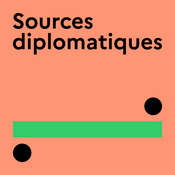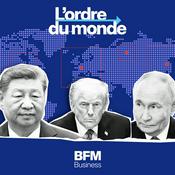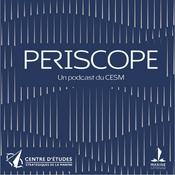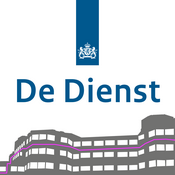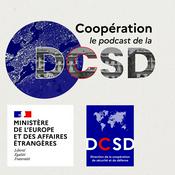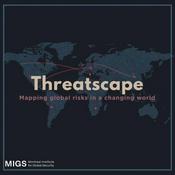Threatscape - Mapping global risks in a changing world
migsinstitute

Dernier épisode
107 épisodes
- In this episode, we sit down with Farlina Said, Fellow and Team Lead in the Cyber and Technology Policy programme at Institute of Strategic and International Studies (Malaysia) to explore all things cyber security, including how we should distinguish between cyber security and cyber stability. Ms. Said discusses the cyber security landscape in 2025, including the challenges that countries face when looking to defend themselves against cyberattacks, as well as the international communities’ difficulty in regulating the international rules of the cyber domain. She also touches on what gives her hope for the future when looking at these issues. Finally, we discuss ASEAN and whether Canada is in a place to partner with ASEAN countries on this issue, and within the Indo-Pacific region more broadly.
- In this episode, we sit down with Dr. Alicia Hennig, interim professor of business ethics at the Technical University of Dresden in Germany, who brings extensive professional experience in China from both business and academia. Dr. Hennig guides us through understanding China's political system, exploring the role of the Chinese Communist Party in daily life and the philosophical foundations that shape Chinese political thought—and how these differ fundamentally from Western traditions. She discusses Xi Jinping’s transformation of China, including the expansion of surveillance systems and what this means for ordinary citizens. Dr. Hennig also addresses common Western blind spots, notably how Beijing views itself on the world stage following its "century of humiliation." We explore the top concerns of the CCP leadership, how China perceives America and the West, and the fundamental differences between Chinese and Russian authoritarian visions for the 21st century. Finally, Dr. Hennig discusses the "no-limits partnership" between China and Russia amid the Ukraine war and offers insights into what Canadians should be watching regarding China in the months ahead.
- In this episode, we sit down with Dr. Nanae Baldauff, Senior Associate Fellow at the NATO Defense College, to explore Japan’s evolving national defence strategy and its growing role in regional and global security. Dr. Baldauff discusses Japan’s defence build-up, its alliance with the United States, and its expanding partnerships across the Indo-Pacific — including strategic ties with Canada and NATO. The conversation also delves into Japan’s relationship with Taiwan and examines possible scenarios in the event of a regional crisis, highlighting the complexities of deterrence and diplomacy in an increasingly tense strategic environment.
- In this timely conversation, political scientist Stephen R. Nagy (Professor at International Christian University, Tokyo) explores the evolving dynamics of security and defence in the Indo-Pacific — a region at the centre of global strategic competition. Drawing on his extensive expertise in regional geopolitics, Dr. Nagy discusses the challenges and opportunities facing Canada as it deepens its engagement in the Indo-Pacific, including India, with whom Canada has had difficult relationship over the past few years. Dr. Nagy also speaks about Canada's economic and security partnerships with Vietnam, Singapore, the Philippines, Japan, Indonesia and the need for creative strategies and entrepreneurship.
- In this episode, we sit down with Karsten Friis, Senior Research Fellow at the Norwegian Institute of International Affairs (NUPI), to explore the evolving security landscape in the Arctic. As great power competition intensifies and climate change opens new strategic frontiers, the region’s importance for both European and Canadian defense policy is growing rapidly. Friis discusses how NATO allies are adapting to new challenges in the High North, the future of transatlantic security cooperation, and why building stronger defense partnerships is key to maintaining stability in the Arctic.
Plus de podcasts Gouvernement
Podcasts tendance de Gouvernement
À propos de Threatscape - Mapping global risks in a changing world
Podcast on global security threats in an increasingly authoritarian world
Site web du podcastÉcoutez Threatscape - Mapping global risks in a changing world, Pervers narcissique : témoignages de victimes de pervers narcissiques ou d'autres podcasts du monde entier - avec l'app de radio.fr

Obtenez l’app radio.fr gratuite
- Ajout de radios et podcasts en favoris
- Diffusion via Wi-Fi ou Bluetooth
- Carplay & Android Auto compatibles
- Et encore plus de fonctionnalités
Obtenez l’app radio.fr gratuite
- Ajout de radios et podcasts en favoris
- Diffusion via Wi-Fi ou Bluetooth
- Carplay & Android Auto compatibles
- Et encore plus de fonctionnalités


Threatscape - Mapping global risks in a changing world
Scannez le code,
Téléchargez l’app,
Écoutez.
Téléchargez l’app,
Écoutez.







